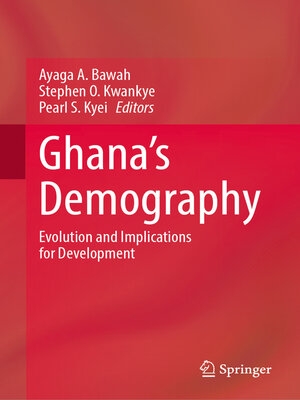Ghana's Demography
ebook ∣ Evolution and Implications for Development · Social Sciences
By Ayaga A. Bawah

Sign up to save your library
With an OverDrive account, you can save your favorite libraries for at-a-glance information about availability. Find out more about OverDrive accounts.
Find this title in Libby, the library reading app by OverDrive.



Search for a digital library with this title
Title found at these libraries:
| Library Name | Distance |
|---|---|
| Loading... |
This book provides a comprehensive analysis of Ghana's evolving demographic landscape, the complex interplay between population trends and social development, and the strategic interventions needed to harness demographic shifts for sustainable development. The book traces historical and modern shifts in fertility, mortality, and migration and the emerging issues posed by these shifts. It further presents a detailed analysis of key drivers and consequences of population change including urbanisation, the demographic dividend, population ageing, literacy and education, poverty, population health and nutrition, and the environment. Each chapter includes an analysis of trends and patterns in the thematic area and highlights the implications for policy and development. The book emphasises the importance of the integration of population factors into development planning across various sectors, and in alignment with national policies and international frameworks such as the African Union Agenda 2063, and the Sustainable Development Goals. Built on decades of research and interdisciplinary collaboration, this work offers data-driven recommendations and forms a critical resource for academics, practitioners, as well as policymakers seeking evidence-based strategies. By examining key population variables and social indicators of policy relevance, the book offers critical insights into how demographic changes shape economic opportunities, social policies, and the well-being of individuals across generations. While focused on Ghana, the book also offers valuable perspectives on broader demographic transitions across sub-Saharan Africa and other developing regions, making it relevant to scholars and policymakers worldwide who seek to understand and leverage demographic change for economic and social advancement. This book is being published to commemorate the 50th anniversary of the University of Ghana's Regional Institute for Population Studies (RIPS).







